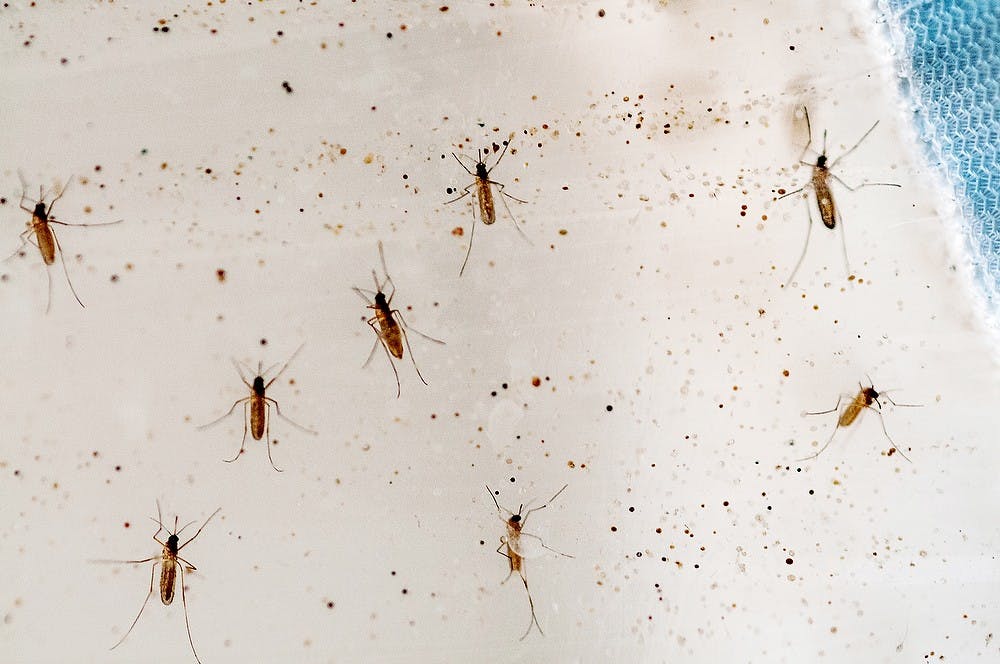Pinched between two low floodplain breeding grounds, MSU is in for a nasty mosquito summer with the largest hatching of floodplain mosquitoes since 1994, entomology professor Ned Walker said.
“There are an extraordinarily high number of mosquitoes,” Walker said. “It will get worse before it gets better.”
April rain and flooding hatched a buildup of floodplain mosquito eggs years in the making, and then a drying period afterward pulled water back, allowing these mosquitoes to lay eggs in previously flooded areas, entomology associate professor Michael Kaufman said.
When these areas reflood, it kicks off a cycle of flooding and drying prime for breeding massive numbers, Kaufman said.
The heavy episodic rainfall reboots the mosquito life cycle, having a snowball effect on the population, Walker said. Once adults, this species lives four to six weeks, invading homes and blood-feeding, he added.
“They blood-feed, lay eggs, blood-feed, lay eggs,” he said.
He also said the eggs produce adults rapidly, normally within 10 days.
While this species of mosquito poses no risk of carrying the West Nile virus and are mainly a nuisance to humans, it can infect dogs with heartworm, Walker said.
Those mosquitoes capable of carrying the West Nile virus hatch later and appear around July to September, he added.
The early burst of mosquitoes has limited impact on the ecosystem, besides extra food for some things here and there, but makes for a miserable year, Kaufman said.
When it comes down to it, they are just bloodsuckers and disease-carriers, Walker said. He jokingly added if there were no more mosquitoes, happier people would be the only true impact.
“They are all over the place this year,” said Harold Karrar, a media and information senior. “I used to have a clip-on, mosquito-repelling fan, but it didn’t really work.”
Karrar advised toughing it out when it comes to mosquitoes without the West Nile virus.
“Just a nuisance? Well, keep calm and carry on,” he said. “Not much to worry about without a parasite.”
Graduate student Ami Patel hasn’t been bitten yet, but has heard the complaints.
“My friend was out in the evening and came back with big, red swollen areas, so I know there’s a (mosquito) problem,” Patel said.
Students can try avoiding the bite by wearing light-colored clothing with long sleeves, Kaufman said.
“If you’re out there and you don’t want mosquitoes to bite you, wear a good repellant,” he said.
Repellants with DEET levels ranging from 25 to 30 percent are the most effective, while there can be negative effects of DEET with misuse, he added.
“Don’t drink it,” Kaufman jokingly advised. “Don’t squirt it in your eyes.”
Support student media!
Please consider donating to The State News and help fund the future of journalism.
Discussion
Share and discuss “Rain, flooding to cause largest number of mosquitoes since 1994” on social media.







